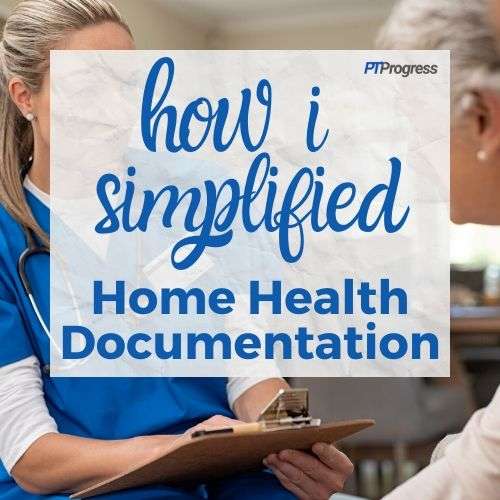Clinical psychologist
You’ll work with people of all ages on a wide range of psychological difficulties in mental and physical health. This can include anxiety, depression, psychosis, ‘personality disorder’, eating disorders, addictions, learning disabilities and family or relationship issues.
Clinical psychologists work with individuals as well as teams and organisations to develop and support psychological practice. You could also be a clinical associate in psychology (CAP), a new role in the NHS which is aligned to clinical psychology.
Chris Millar
Clinical psychologist
The best part of this job? Being able to work with people who might otherwise have difficulty accessing support.
Read Chris’s story
Working life
Using direct observation, interviews and techniques such as psychometric testing, you’ll make an assessment of a patient’s problem. Psychological intervention requires shared decision making with the individual, and often their carers and family members.
You’ll work in partnership with service users to design and implement interventions to overcome their condition or improve their quality of life. This will usually take place over a series of individual, couple, family or group sessions. You’ll deliver psychological therapy but also train practitioners and other supervising staff, undertake research and lead teams of clinicians.
You’ll be trained to work with individuals, families and groups of different ages experiencing psychological distress or behavioural problems which disrupt their everyday functioning and wellbeing. You’ll aim to reduce distress and to enhance and promote psychological well-being, minimise exclusion and inequalities and enable service users to engage in meaningful relationships and valued work and leisure activities.
You’ll will draw on your scientific knowledge to bring about positive change. You’re trained in cognitive behavioural therapy as well as at least one other major psychotherapeutic approach. You’ll provide individual therapy, and work with couples or families, as well as teams and services. You’ll also provide supervision and support to other professionals and teams and develop services and carry out research.
Training
Training is a three year full time taught doctorate programme which includes teaching, supervision, and a salaried training post paid at Agenda for Change Band 6.
Entry requirements
You’ll need a psychology degree recognised for the “Graduate Basis for Chartered Membership ” by the British Psychological Society. There is also a high level of competition for places on the 30 training programmes in the UK.
You’ll also be asked to show how you think the values of the NHS Constitution apply in your everyday work.
Who will I work with?
As a clinical psychologist, you will specialise in work with a specific population, such as children and young people, adults of all ages, people with learning disabilities or people with neurological problems.
You may work as part of a multi-professional team including doctors, nurses, allied health professionals and a range of other psychological professionals.
Some clinical psychologists also work for part of their week teaching and researching in their area of expertise.
Where will I work?
You are likely to work in some, or all, of the following settings:
- in hospitals
- in local clinics and health centres
- in community mental health teams
- in social services, schools and prisons
- Improving Access to Psychology Therapy (IAPT) services.
You will also liaise with members of community mental healthcare teams and other agencies such as the probation service and social services.
Pay and benefits
Most jobs in the NHS are covered by the Agenda for Change (AfC) pay scales. This pay system covers all staff except doctors, dentists and the most senior managers.
While training, clinical psychologists will be paid at band 6 and after completing their training, they will be paid at band 7, with opportunities to progress to higher banding in your career. Clinical psychologists in the NHS work full or part time. Terms and conditions can vary for employers outside of the NHS.
Where the role can lead
After qualifying and gaining some clinical experience, you may decide to specialise in a particular area of work, such as clinical neuropsychology, working with offenders or people with dementia.
You could also specialise in specific psychological therapies. For example you could work in Improving Access to Psychological Therapies (IAPT) services if you have undertaken a Doctorate that is also accredited by the British Association of Behavioural And Cognitive Psychotherapies (BABCP, Level 2). Or you could specialise in dialectical behaviour therapy or family and systemic psychotherapy by undertaking further training.
Some clinical psychologists decide to go into supervisory roles, clinical management or clinical academic research. You could apply for more senior positions e.g. consultant psychologist or head of a psychological service.
If you start NHS-funded training from April 2022, you will normally be unable to access further NHS-funded training for a new occupation in the psychological professions until two years after your qualifying exam board. Visit the funding for psychological professions training programmes web page for more information about NHS funding.
Specialising in clinical neuropsychology
You may be able to specialise in clinical neuropsychology. Clinical neuropsychologists work in the assessment and rehabilitation of people with brain injury or neurological disorder. They are specially trained to understand the relationship between brain and neuropsychological function. Brain injuries and neurological illnesses can affect the way a person thinks, feels and behaves and it is a clinical neuropsychologist’s job to assess and help to treat the effects of these problems. You could work across a range of health and social care providers and may work as part of multi-professional teams including neurosurgeons, neurologists and allied health professionals.
You will work in a specialist service and undertake the British Psychological Society’s (BPS) Qualification in Clinical Neuropsychology (QiCN). Criteria for the QiCN involves completing a post-doctoral diploma in clinical neuropsychology and examination of a two-year portfolio of clinical neuropsychology cases. You will then be eligible for entry onto the BPS Specialist Register of Clinical Neuropsychologists.
Clinical associate in psychology
A clinical associate in psychology (CAP) provides psychologically informed interventions under the supervision of a fully qualified clinical psychologist, based on a psychological ‘formulation’ of the patient’s difficulties. This is a simplified ‘map’ of how different aspects of the problem fit together and what could be keeping it going.
You will use formulations and assessment tools to work with people to find and deliver the best course of intervention, linked to evidence.
Unlike clinical psychologists, you will work only within the single area of practice you’ve trained in, such as children and young people’s services, or adult mental health services.
You’ll then need to do an apprenticeship run by an employer such as an NHS trust which is linked to an integrated Master’s degree. The apprenticeship takes 18 months and is funded by the employer. The training includes elements of theory, research and practical skills and will qualify you to work as a practitioner in NHS services. Opportunities to apply for CAP apprenticeships are led by employing healthcare organisations, and advertised on the NHS Jobs website. You are usually paid at band 5 during their programme and band 6 on completion.
Clinical psychologists assess and treat clients with a range of mental or physical health issues, conditions and disorders
As a clinical psychologist, your aim is to reduce the distress and improve the psychological wellbeing of your clients who may have a variety of mental or physical health conditions, including:
- anxiety
- depression
- mental illness
- adjustment to physical illness
- neurological disorders
- addictive behaviours
- challenging behaviours
- eating disorders
- personal and family relationship problems
- learning disabilities.
You’ll work in partnership with your clients in order to diagnose, assess and manage their conditions. Assessment can be done through a range of techniques including interviews, observation and psychometric testing. Once assessed, you’ll provide a treatment plan that may include counselling, advice or therapy.
You’ll work with individuals, including children, adolescents and adults, as well as families, couples and groups in a range of settings. You’ll also liaise with other professionals such as psychiatrists, social workers and counselling psychologists in order to deal with your clients’ complex issues.
Responsibilities
As a clinical psychologist, you’ll need to:
- assess your clients’ needs, abilities or behaviour using a variety of methods, including psychometric tests, interviews and direct observation of their behaviour
- plan, monitor and adapt appropriate treatment programmes and interventions, including therapy, counselling or advice, in collaboration with colleagues
- offer therapy and treatments for issues relating to a range of mental health conditions
- evaluate the efficacy and outcome of treatments
- provide consultation to other members of the multidisciplinary team, encouraging a psychological approach in their work
- counsel and support carers
- develop and evaluate service provision for clients
- carry out applied research, adding to the evidence base of practice in a variety of healthcare settings
- provide clinical supervision to less experienced psychologists and members of the wider multidisciplinary team
- provide psychology teaching and training to other members of the team.
More experienced clinical psychologists may be called on to write legal reports and act as expert witnesses. In these cases, you’ll keep detailed paperwork about clients in order to monitor the progress of their treatments.
Salary
- Trainee clinical psychologists start at £32,306 (Band 6) of the NHS Agenda for Change (AfC) pay rates. After qualification, salaries within the NHS start at £40,057 (Band 7).
- More experienced psychologists can earn between £47,126 and £63,862 (Bands 8a and 8b).
- Consultant-level clinical psychologist roles typically range from £65,664 to £90,387 (Bands 8c and 8d).
- Heads of psychology services may earn in the region of £93,735 to £108,075 (Band 9).
The NHS pays a London high-cost area supplement at 20% of basic salary for inner London, 15% for outer London and 5% for fringe areas.
Salaries in private hospitals and private practice vary.
Income figures are intended as a guide only.
Working hours
Working hours are typically Monday to Friday, 9am to 5pm, although you may do some extra hours in the evenings or at weekends. Occasionally, you may work as part of an on-call system covering emergency situations.
Related case studies
What to expect
- You’ll work as part of a multidisciplinary team alongside doctors, nurses, social workers, education professionals, health visitors, psychiatrists and occupational therapists
- Jobs are available in most cities and large towns, with fewer opportunities in rural areas. Self-employment or freelance work is possible in private or clinical practice, and for industrial or commercial consultancy.
- The work can be challenging as it involves contact with many different types of people who are often distressed in some way. Occasionally, you might encounter situations of potential personal risk.
- Supervision by colleagues is important throughout your career.
- You’ll often need to travel during the working day to visit clients. However, you’re unlikely to spend time away from home overnight or work abroad.
Qualifications
To practise as a clinical psychologist in the UK you must be registered with the Health & Care Professions Council (HCPC), which involves training at Doctorate level.
To begin training you’ll normally need Graduate Basis for Chartered Membership (GBC), which is achieved by completing a psychology degree or conversion course accredited by The British Psychological Society (BPS). For a full list of GBC qualifying courses see the BPS Accredited Psychology Courses.
You’ll then complete a Doctorate in Clinical Psychology that is accredited by the BPS and approved by the HCPC. Currently, most places on clinical psychology doctorate courses are funded by the NHS. This situation may change, however, so check when applying for a place whether funding is available.
You’ll usually need a first class honours degree or a 2:1 (some courses will require an upper 2:1) to get a place on a Doctorate course. Some providers may accept a 2:2 (or a lower 2:1) if you have a relevant Masters or PhD. You’ll also need relevant clinical/research work experience. For details of entry and work experience requirements, check with individual course providers.
You’ll also need to have an enhanced Disclosure and Barring Service (DBS) check (Protection of Vulnerable Groups (PVG) Scheme in Scotland).
Applications for most doctorate courses are made through the Clearing House for Postgraduate Courses in Clinical Psychology. However, the University of Hull and Queen’s University Belfast operate their own admissions process. Applications usually open during September and close in November. The majority of courses are full time over three years.
You’ll be employed throughout the course by the NHS as a trainee clinical psychologist and will receive a salary. Training follows a structured programme of learning which combines academic and practical training, including clinical placements and research.
On successful completion of your Doctorate, you’re eligible to apply for registration with the HCPC and chartered status with the BPS.
Skills
You’ll need to have:
- excellent communication and interpersonal skills in order to deal with people in distress
- empathy and a person-centred approach to clients
- the ability to apply your knowledge of academic psychology and research to clinical problems
- the ability to recognise your own limitations and respond to difficult situations
- the capacity to be critical and analytical and to work in a self-motivated, independent way
- the ability to think clearly in challenging situations
- the ability to collaborate with colleagues from other disciplines
- the determination to succeed
- time management and prioritisation skills
- good general IT skills
- a strong understanding of the profession and the role of a clinical psychologist, and an awareness of current NHS issues.
A driving licence is usually required for local travel.
Work experience
You’ll need relevant work experience, often a minimum of 12 months, to get a place on a Doctorate course. Most course providers have specific requirements on the amount and type of experience they want or give advice on how to go about gaining the necessary experience.
Some course providers are particularly keen on experience gained as an assistant psychologist in an NHS clinical psychology department under the supervision of a clinical psychologist. Competition for these posts is particularly fierce.
Experience in clinically-oriented research that contributes to your understanding of clinical psychology practice is also relevant. It’s helpful to have a good balance of experience in both academic and clinical areas.
Paid or voluntary work in other areas such as nursing, social work, care work, mental health work or services for individuals with disabilities can also be useful. Relevant jobs include graduate primary care worker, nursing assistant, healthcare assistant or support worker and psychological wellbeing practitioner,
Any experience you get should be with groups and services that are directly relevant to clinical psychology and must provide you with the opportunity to interact with people with health or psychological difficulties.
Find out more about the different kinds of work experience and internships that are available.
Advertisement
Employers
Most clinical psychologists are employed by the NHS. Opportunities are available in a range of health and social care settings, including:
- hospitals
- psychiatric units
- local clinics and health centres
- community mental health teams
- children and young people’s mental health services (CYPMHS)
- social services
- schools and universities
- prisons
- Improving Access to Psychological Therapies (IAPT) services.
There are also opportunities to work on a self-employed basis and in private practice.
Look for job vacancies at:
Specialist recruitment agencies such as Pulse and JobMedic also advertise vacancies.
Professional development
Once qualified, you must keep your skills up to date and follow ongoing developments in research. Continuing professional development (CPD) is an essential part of continued registration with the HCPC and chartered membership of the BPS, and should include a mixture of directed and self-directed activities.
Activities can include:
- taking post-qualification training courses, which help to develop your knowledge of different theoretical approaches or specialist areas or work
- clinical supervision training
- attending conferences, workshops and events
- writing articles or papers for journals
- carrying out and presenting research and papers at conferences
- lecturing or teaching
- mentoring, supervising or assessing trainees
- developing expertise with a particular client group.
You’ll need to keep an up-to-date and accurate record of your professional development activities, showing that your CPD contributes to the quality of your practice and service delivery and is beneficial to your clients.
More information can be found at the BPS Professional Development Centre.
Career prospects
There is a structured career path within the NHS and you should be able to progress through the pay bands as you gain experience and move into new roles.
You may choose to specialise in a particular area of clinical psychology, such as:
- addiction
- clinical neuropsychology
- clinical health psychology
- forensic clinical psychology
- oncology and palliative care
- psychosis and complex mental health.
With experience you may move into a supervisory or clinical management role, taking on more responsibility for both staff and clinical psychology services.
Clinical psychologists with the right combination of skills and experience may be eligible to apply for consultant-level positions. From here, a small number of heads of specialty posts are available (in areas such as adult mental health) with progression to overall head of a psychology service.
With experience, you may become involved in the teaching, supervision and training of other clinical psychologists. You may also choose to move into clinical academic research.
How would you rate this page?
On a scale where 1 is dislike and 5 is like
Something went wrong. Please try again.
Do not fill this in
success feedback
Related jobs and courses
Uni profile
The University of Chicago Booth School of Business London Campus
View profile
Uni profile
Middlesex University Dubai
View profile
graduate scheme
Operations Graduate Programme
- Chivas Brothers
- £27,001-£29,500
- Glasgow
View job
graduate scheme
NPD Graduate
- Dunbia (26 other jobs)
- Competitive salary
- Llanelli
View job




